A Wining Cost Estimate That Helps You To Win More Construction Projects

As a fundamental aspect of the construction process, accurate cost estimation is critical to ensure profitability, maintain project schedules, and deliver high-quality work. An accurate and reliable cost estimate provides a roadmap for the project, enabling stakeholders to make informed decisions and manage resources effectively. By using the appropriate tools, techniques, and data, construction professionals can ensure the accuracy and consistency of their cost estimations, reducing uncertainty and risks associated with the project.
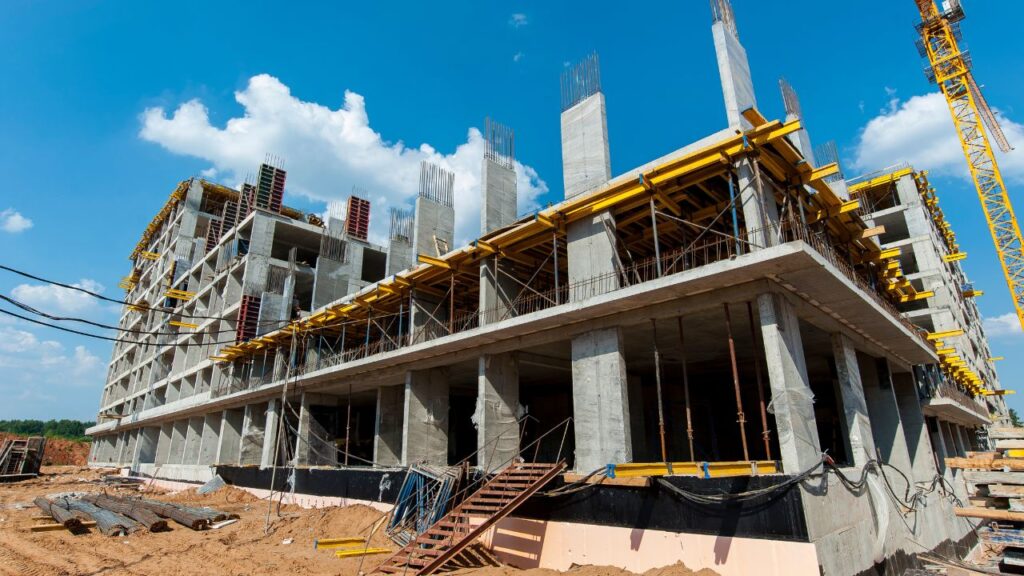
To avoid cost overruns and project delays, construction firms must invest time and resources in developing a detailed and comprehensive cost estimation plan. This includes gathering accurate project data, analyzing historical performance metrics, and selecting the appropriate cost estimation techniques to use.
By establishing a clear understanding of the project scope and objectives, and utilizing standardized methods, stakeholders can reduce the likelihood of project cost escalation, minimize the impact of unforeseen risks, and improve overall project outcomes.
In today’s competitive landscape, the ability to produce accurate cost estimates is more critical than ever. Construction firms that fail to invest in accurate cost estimation techniques risk losing out on project bids, earning low profitability, and damaging their reputation with clients. By prioritizing accurate cost estimation, stakeholders can position themselves as reliable, trustworthy, and competitive players in the construction industry.

By establishing a clear understanding of the project scope and objectives, and utilizing standardized methods, stakeholders can reduce the likelihood of project cost escalation, minimize the impact of unforeseen risks, and improve overall project outcomes.
In today’s competitive landscape, the ability to produce accurate cost estimates is more critical than ever. Construction firms that fail to invest in accurate cost estimation techniques risk losing out on project bids, earning low profitability, and damaging their reputation with clients. By prioritizing accurate cost estimation, stakeholders can position themselves as reliable, trustworthy, and competitive players in the construction industry.
Accurate cost estimation isn’t just a suggestion, it’s a hammer that can smash megalithic project setbacks.
Accurately estimating the costs of a construction project can be highly beneficial for various reasons. By having a deep understanding of the benefits associated with accurate cost estimation, one can make informed decisions that positively impact the project’s outcome.
For instance, having a precise cost estimation helps with securing financing, meeting budgetary constraints, and avoiding unnecessary expenses.

Besides helping to secure funding, an accurate cost estimation helps in predicting potential problems that may arise during the project’s completion. Such predictions help with creating risk mitigation measures and establishing contingencies in case of unforeseen events. Additionally, accurate cost estimations ensure that all costs are accounted for, including labor charges, material prices, and equipment rentals.
While building projects have been around for centuries now, getting the estimates right has not always been straightforward. The lack of technology and information sharing platforms made it challenging to estimate costs accurately back then. However, modern-day construction uses automated tools and algorithms to give an estimate more close to reality.
In summary, ensuring that your construction project adheres to realistic budgets requires accuracy during cost assessment. With proper planning and execution of these estimates comes satisfaction and reduction in rework while helping concerned resources stay within pre-defined timelines.
Bad cost estimation in construction can turn a dream project into a financial nightmare.
We help Residential & Commercial Contractors to win more projects with higher accuracy.

Accurate cost estimation in construction projects is paramount. Wrong estimates can lead to unexpected increases in costs, project delays and unsatisfied clients. Inaccurate estimations can also result in undervaluation of the project, leading to disputes between stakeholders. Cost overruns can undermine a contractor’s credibility, damaging their reputation and diminishing the chances of future contracts. Moreover, underestimation of costs can directly affect the quality of work, compromising safety and structural stability.
Accurate cost estimation in construction projects is paramount. Wrong estimates can lead to unexpected increases in costs, project delays and unsatisfied clients. Inaccurate estimations can also result in undervaluation of the project, leading to disputes between stakeholders. Cost overruns can undermine a contractor’s credibility, damaging their reputation and diminishing the chances of future contracts. Moreover, underestimation of costs can directly affect the quality of work, compromising safety and structural stability.
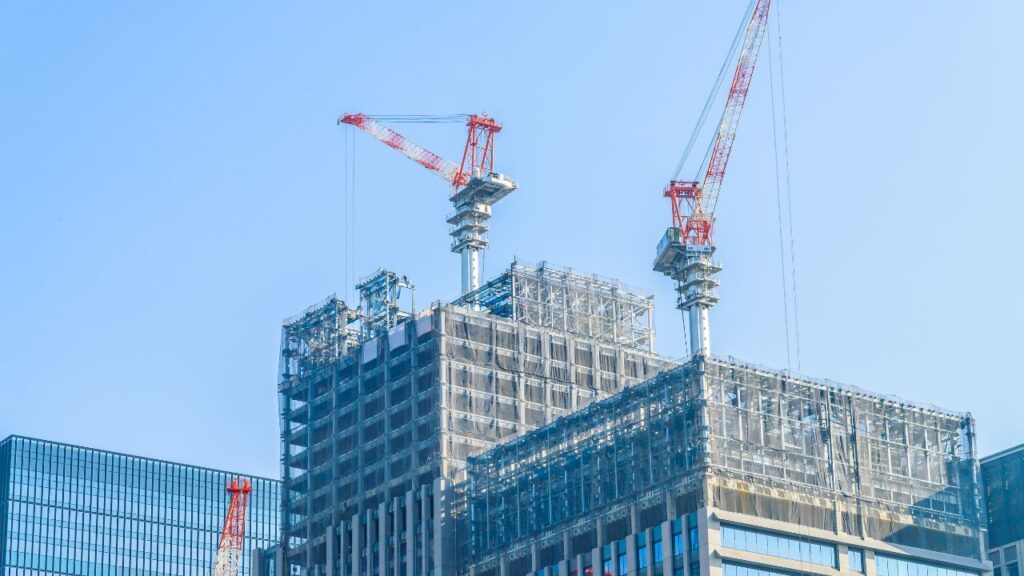
Poor cost estimates can have devastating outcomes on different phases of a project. For instance, during the bidding process, an inaccurate estimate could corner potential contractors into underestimated prices that could eventually hurt their bottom line. The design team could find important elements infeasible to deliver if budget constraints are not accurately predicted at the planning stage. Failure to keep costs on track might lead to significant reductions in resources or cutbacks in crucial areas such as building materials or labour.
In addition to being expensive for everyone concerned in a project, it causes considerable worry for construction contractors who need accurate estimates for upcoming projects but have been scarred from previous mistakes. Estimating professionals must put themselves at the forefront by investing in precise software-support workflows and meticulous evaluations which are becoming even more critical with increasing demands for fast delivery times.
It’s necessary for people involved in any aspect of construction whether it’s architects or investors to promote accurate estimated costs from start to finish. Indeed, Accuracy is something that should always be prioritized because no one will benefit from any inaccuracies down the line- except added stress on both parties’ hands!
Cost estimation in construction is like predicting the weather – you can try your best, but sometimes Mother Nature has other plans.
In the construction industry, numerous complex and inter-related factors have a significant impact on accurate cost estimation. These factors can be broadly classified into six distinct categories that include project parameters, construction site conditions, labor costs, materials cost, equipment cost and financial risks.
A table can be used to list and compare some of the most critical factors affecting accurate cost estimation. Project parameters such as project size, scope, design, and complexity can significantly affect the cost of construction. Similarly, construction site conditions, including topography, soil type, and accessibility, can influence the cost of raw materials, labor, and equipment required for the project. Labor costs vary depending on location, training, and experience, while material costs depend on the type and quality of materials used. Equipment costs vary depending on the project’s scale, the duration of use, and the equipment rental cost. Finally, financial risks such as inflation, interest rates fluctuation, and delays can affect project costs.
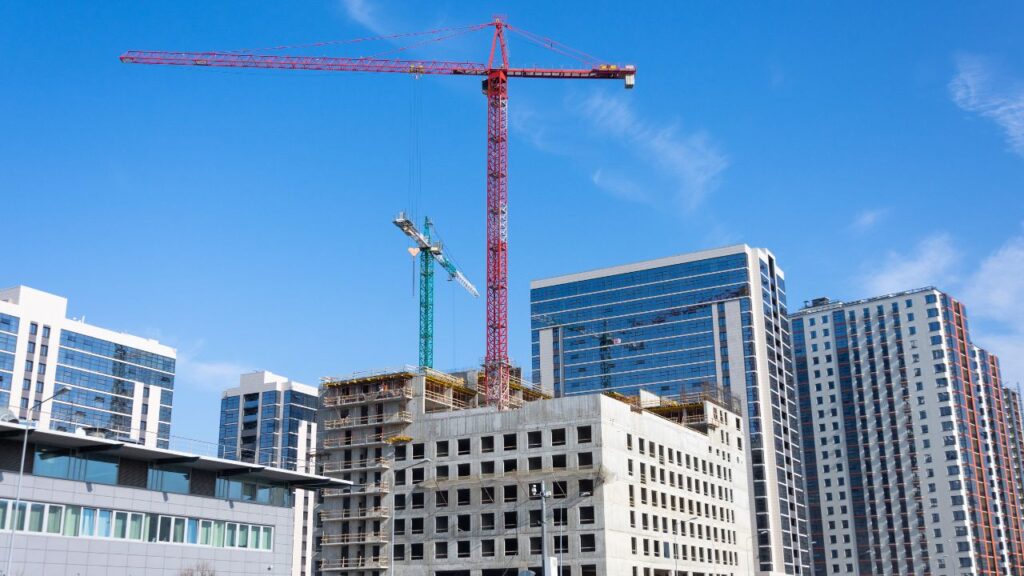
Apart from the obvious factors mentioned above, other variables such as weather, regulatory issues, and project financing can also impact cost estimation. Since these variables are usually beyond the control of project managers, accurate estimation of their potential impact becomes even more critical.
We help Residential & Commercial Contractors to win more projects with higher accuracy.
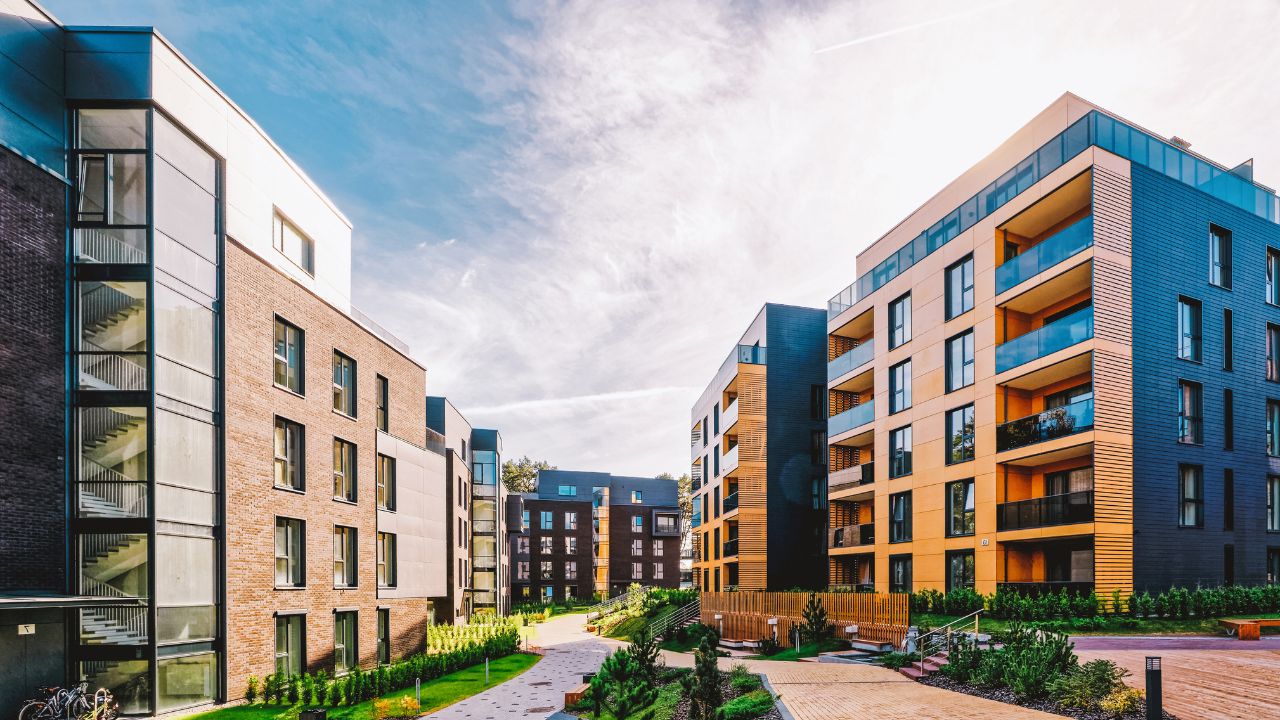
To achieve accurate cost estimation, some strategies can be implemented, such as using historical data, employing experts in construction cost estimation and conducting regular risk assessment. Accurate cost estimation helps in budget preparation, project scheduling, and bidding accurately for projects.
The cost of materials can really hammer your budget, so make sure you don’t nail your estimates.
The estimation of costs in construction projects takes into consideration multiple factors, one of which is the materials used. The identification and calculation of the costs of materials are integral to forming an accurate estimate.
A table can be used to outline the various materials needed for a project, their corresponding costs and quantities required. For instance, for a brick wall, the table may include columns such as ‘Bricks‘, ‘Cement‘, ‘Sand‘, ‘Labor‘, etc., with details on the prices and measurements mentioned.

It is essential to keep in mind that certain factors can influence these material costs. These may include location, sourcing, availability and fluctuations in market value. Moreover, changes made to specifications or design preferences along the way may also impact material prices as well as overall cost estimates.
Some suggestions to mitigate these material-related cost fluctuations include preemptively identifying multiple suppliers for each type of material required so that price comparisons are possible. Additionally, periodically checking on pricing information can benefit assessments of supplier reliability and supply chain issues which could lead to additional savings or risks.
Construction labor costs may be on the rise, but at least they still come in cheaper than a therapist for the project manager.
The workforce is a crucial factor in cost estimation for construction projects. The number of workers, their skills and experience, salaries, and hours worked all significantly affect the overall cost. The labor-intensive nature of construction means that any variations in this factor can have a significant impact on the project’s final bid.
In many cases, the lack of skilled workers increases the labor cost as it requires hiring workers from outside the local area. This situation may lead to additional costs such as relocation fees or travel expenses for accommodation. Moreover, skilled labors may demand higher wages, adding up to the overall labor expenditure.

It is essential to note that labor costs are not just limited to salaries paid to workers; other factors contribute to an overall increase. For example, safety measures such as educating workers about working in hazardous conditions may also add on training costs.
One company had estimated their construction project’s labor cost based on previous similar projects’ data. However, this strategy failed due to variation in worker skill sets and levels of experience ultimately leading to missing deadlines and increased costs.
Construction equipment: Your best friend until it breaks down and becomes a giant paperweight.
Starting with the technical lexicon, ‘Heavy Machinery and Tools’ are essential to any construction project to ensure maximum efficiency and productivity. The cost estimation for such equipment can be a crucial aspect of overall project expense.
A Table is an effective tool to illustrate each piece of machinery’s cost and its frequency of use in the project duration. Below is a table depicting costs associated with different Heavy Machinery types –

S.No | Heavy Machinery | Cost per unit (in USD) | Frequency of Use |
|---|---|---|---|
1 | Bulldozer | 40000 | Daily |
2 | Excavator | 33000 | Weekly |
3 | Concrete Mixer | 2100 | Monthly |
4 | Crane | 67500 | Bi-weekly |
Keeping track of both utilization and depreciation can reduce expenses incurred by damaged, aged, or underutilized equipment.
It is worth noting that while spare parts are relatively inexpensive maintenance costs on heavy machinery can quickly skyrocket. Conducting regular checks and calibration ensure optimal working performance, helping prevent costly breakdowns.
In my days as a site manager, we experienced delays due to multiple excavator failures which eventually lead to increased machinery rentals. We learned from our mistakes and made sure spare parts were always in stock and scheduled maintenance was conducted regularly to prevent such incidents happening again.
If you want to save money on construction, just locate your project in the middle of nowhere. The only thing you’ll need to worry about estimating is the cost of gas to get there.

The location of a construction project is a crucial factor affecting the overall cost estimation. The geographical region plays a significant role in determining the cost of labor, materials, and transportation. Some areas may have high labor costs due to scarcity, while others might have relatively low prices. Similarly, some regions may face logistic issues when transporting materials, which can significantly impact project costs.
Additionally, the cost of permits and licenses can vary depending on the location of the project. Permits and licenses are necessary legal requirements that must be obtained before beginning any construction work. The expenses for obtaining these permits might vary depending on local laws, regulations, and fees.
It’s essential to research and consider these factors while estimating project costs accurately. Conducting market surveys in various regions can provide valuable insights into cost differences for materials, transportation, and labor. Additionally, consulting with experienced professionals in the construction industry can help identify critical factors affecting the overall cost estimation.
Considering all aspects related to project locations can aid in preparing accurate budgets at the planning stage. Accurate estimations lead to better decision-making abilities while managing resources throughout the construction process.
“Building a sandcastle is child’s play compared to estimating the cost of a complex construction project.”
Project intricacy is a prominent factor influencing cost estimation in construction. A project’s level of complexity can impact the time required for completion, resources needed, and overall cost.
To delve deeper into the impact of project complexity on construction cost estimation, we have created a table showcasing data on various aspects that can contribute to a project’s complexity. The table includes columns for factors such as site characteristics, design sophistication, scope of work, and contract type. Each factor has been rated on a scale of low to high complexity based on their potential impact on the project’s overall difficulty level.

Moving beyond this quantitative analysis, other unique aspects must also be taken into account when assessing project complexity. This can include variables such as regulatory requirements or stakeholder management challenges that cannot simply be measured using numerical values.
In today’s competitive construction industry, accurate cost estimation is an essential aspect of delivering successful projects. By comprehensively evaluating the various factors that contribute to project complexity, teams can better mitigate risks and ensure they are providing realistic financial projections to stakeholders.
Don’t miss out on the benefits of thorough and nuanced cost estimation strategies – invest the time and resources needed to fully evaluate your project’s complexity and ultimately set yourself up for success.
You can try guessing the cost, but unless you have psychic powers, accurate estimation methods are the way to go.
In construction, it is important to accurately estimate costs. The following are effective methods for achieving this:
Method | Description |
Quantitative Estimating | Estimating based on detailed measurements and calculations |
Analogous Estimating | Estimating based on similar projects and historical data |
Bottom-Up Estimating | Estimating each component or task individually and then adding them up |
Expert Judgment | Estimating based on the input of experienced professionals in the field |
It is important to note that each method has its own strengths and limitations and sometimes a combination of methods may be necessary.
It is also important to consider factors such as inflation, labor costs, material costs, and unexpected expenses when estimating costs accurately.
To ensure success, it is crucial to utilize multiple methods and carefully evaluate all relevant factors when estimating construction costs.

Don’t miss out on accurate cost estimation in construction! Utilize these methods and considerations to ensure the success of your project.
Ready to get down and dirty with your cost estimates? Bottom-up estimating has got you covered.
Maximize your construction business’s potential with our competitive financing options

Structuring construction cost estimation involves a process known as estimating from the ground up. This is commonly referred to as ‘Bottom-Up Estimating’. It requires taking into account all necessary elements and sub-elements that contribute to the final project cost.
A four-step guide for Bottom-Up estimating includes:
This method ensures that every fraction and detail of various project areas is accounted for. A detailed approach eliminates surprises throughout the execution of the project and leads to successful outcomes.
A noteworthy key detail about Bottom-up estimation is that it helps define different aspects of budgeting to identify discrete areas where costs can be controlled.

According to research published in “Journal of Professional Issues in Engineering Education and Practice,” “The bottom-up model is proven more reliable and offers greater value than other estimation methods.”
Who needs a crystal ball when you can just use top-down estimating to magically predict project costs?
A technique for cost estimation in construction, involving the assessment of overall costs at the beginning of the project, is known as Broad Calculation. The benefits of Top-Down Estimation are that it enables quick identification of projects that are too expensive and makes budget prioritization easier.
| Top-Down Estimating | Benefits |
|---|---|
| Quick identification of expensive projects | Helps to identify which projects are likely to be more costly and prioritize them accordingly. |
| Easier budget prioritization | Allows for better allocation of resources and helps to ensure that the most important projects receive sufficient funding. |
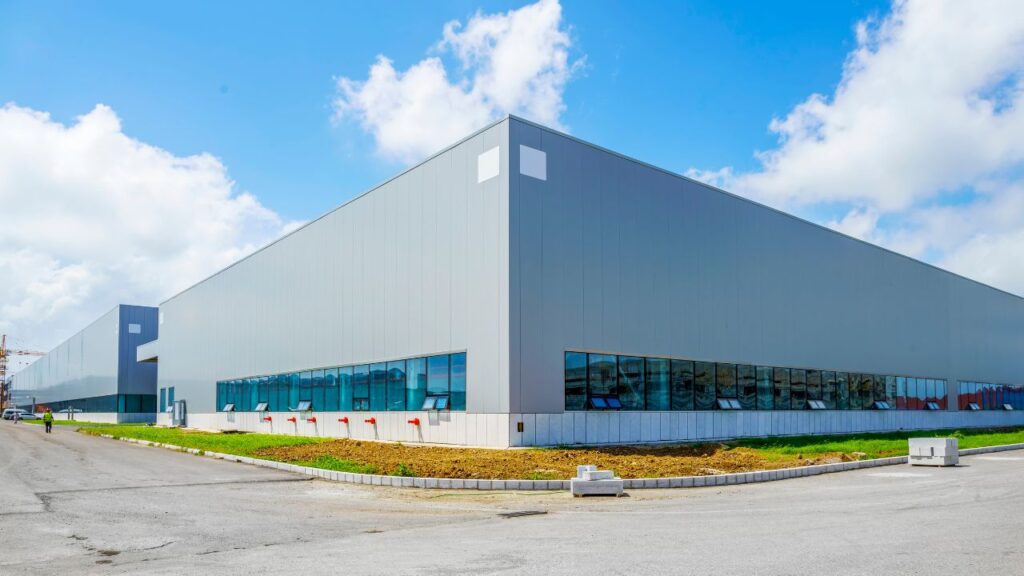
Top-Down Estimating allows for better decision-making by identifying expensive projects immediately. By pre-determining a budget, builders can avoid costly surprises and ensure sustainable development.
Top-Down Estimating allows for quick and easy preliminary assessments that save time and money.
If estimating costs was a math problem, parametric estimating would be the answer key…or at least the closest thing we have.
Utilizing data from previous projects to create an estimated cost for new constructions is known as Parameter-Based Analysis. This technique uses fixed performance variables, such as area and volume, to generate an estimate based on historic unit costs. By drawing on accurate and up-to-date information from similar ventures, Parametric Estimating allows project teams to efficiently compile budgets while maintaining a high degree of accuracy.
Parametric Estimating is widely used in the field of construction due to its effectiveness in providing accurate costs of projects at the early stages, which aids in decision-making. Factors that influence the duration, cost and complexity are considered while generating estimates. It eliminates subjectivity by providing a structured approach with accountability at every stage.
This technique’s accuracy hinges on obtaining reliable data concerning expenses incurred from past assignments. Experts have identified that insufficient or incorrect historical data can make estimates inaccurate; hence careful collection and assessment are vital for clarity.
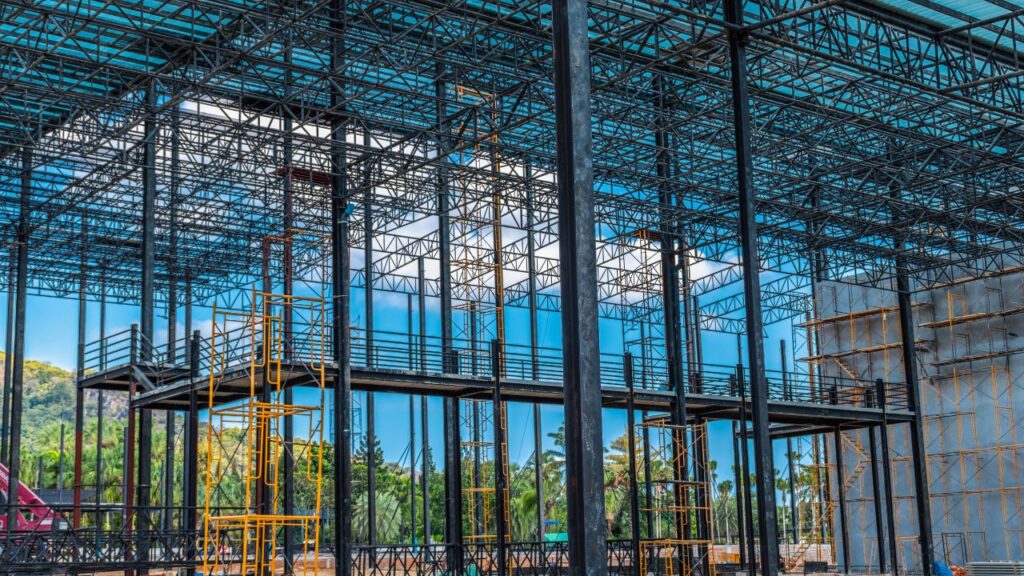
Do not miss out on the acute benefits Parametric Estimating offers during initial project phases. Improved estimations lead to more realistic goals, better preparedness for unforeseen occurrences, and ultimately meeting project objectives within given timeframes. The reliance placed upon this method cements it as an essential tool in the construction industry’s arsenal.
Estimating construction costs is like playing a game of telephone: the further you go from the original estimate, the more distorted it gets.
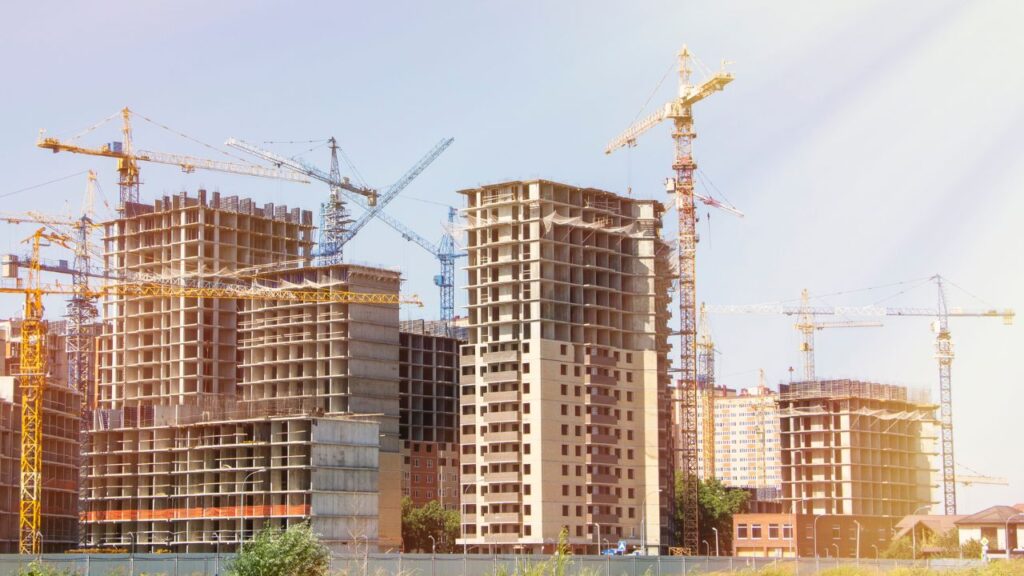
For Comparative Cost Estimating, use Relevant Similarities Methodology. Compare the current project with a similar one to estimate its costs.
Analogous Estimating |
|---|
Project A |
Project B |
Project C |
By using Analogous Estimating, we can save time and increase accuracy in cost estimation. However, it is critical to pick similar projects for comparison that have comparable construction elements and conditions. Subsequently, comparing those projects’ costs by reviewing the construction drawings thoroughly helps faster completion and a high degree of certainty in outcomes.
A significant benefit of using Analogous Estimating is that it can be completed early in the proposal or planning stages before substantial information about the project has been gathered.

Do not miss out on the acute benefits Parametric Estimating offers during initial project phases. Improved estimations lead to more realistic goals, better preparedness for unforeseen occurrences, and ultimately meeting project objectives within given timeframes. The reliance placed upon this method cements it as an essential tool in the construction industry’s arsenal.
Estimating construction costs is like playing a game of telephone: the further you go from the original estimate, the more distorted it gets.
Gather comprehensive information about the analogous project to ensure that accurate comparisons are made when applying this methodology.

To optimize cost estimation accuracy in construction, utilizing a methodology known as Triangular Estimation is paramount.
A Table including columns for optimistic, most likely, and pessimistic potential costs allows project managers to estimate a range of possible costs with the best, most probable, and worst-case scenarios considered. By associating weighted probabilities with each value, this method provides superior expense forecasting while accounting for unknown variables.
In practice, contractors or project managers can additionally gather data on previous similar projects’ expenditures to establish benchmark estimates.
I once worked on a small renovation project that was estimated to cost around $80k using three-point estimating. However, due to delays in construction and unexpected fluctuations in material costs, the final bill amounted to approximately $92k – reinforcing the importance of utilizing accurate methods for cost estimation in construction projects big or small.

Cost estimation in construction is like trying to predict the weather in London – you can prepare for everything, but still end up with a shower of surprises.
The process of estimating construction costs can be challenging, but it is crucial to ensure that projects are completed on time and within budget. To overcome these challenges, it is important to use accurate data from previous projects and consult with industry experts. Additionally, utilizing software tools and breaking down the project into smaller components can help to improve the accuracy of cost estimates.
It is also important to account for unexpected expenses that may arise during the construction process. This can include changes in design or unforeseen issues such as weather delays or site conditions. By including contingency plans and regularly reviewing and adjusting cost estimates, construction projects can be completed successfully within budget.
One unique challenge in cost estimation is the need to balance the desire for accuracy with the need to provide a competitive bid for the project. This requires careful consideration of all factors that may impact the final cost and finding a balance between accurate estimates and competitive pricing.

Don’t miss out on accurate cost estimation in construction! Utilize these methods and considerations to ensure the success of your project.
Ready to get down and dirty with your cost estimates? Bottom-up estimating has got you covered.
In a recent project, a construction company underestimated the cost of materials and labor, leading to significant budget overruns and delays in completing the project. By learning from this experience, the company implemented stricter cost estimation practices and regularly reviewed and adjusted their estimates throughout the project. This allowed them to successfully complete subsequent projects within budget and on time.
Project scope that’s as clear as mud? Welcome to the game of construction estimation.
Cost estimation is a crucial aspect of project management. However, uncertainty and ambiguity in project scope creates challenges in this area. Without proper definition, the scope can be hard to estimate accurately.
To overcome ambiguity in project scope, it is necessary to collaborate with all stakeholders and make sure that there is a common understanding of the terms used in the project scope. This will ensure that everyone has a unified vision and reduces misunderstandings.
It is also helpful to identify all possible risks early on and develop mitigation plans beforehand, allowing for better cost estimation.
Developing a clear communication plan with stakeholders will also reduce ambiguities as discussions can take place regularly and any discrepancies identified during talks can be addressed immediately.
In a real-life example, a company initiated a software development project without clearly defining the scope, leading to unforeseen changes during implementation causing increased costs.
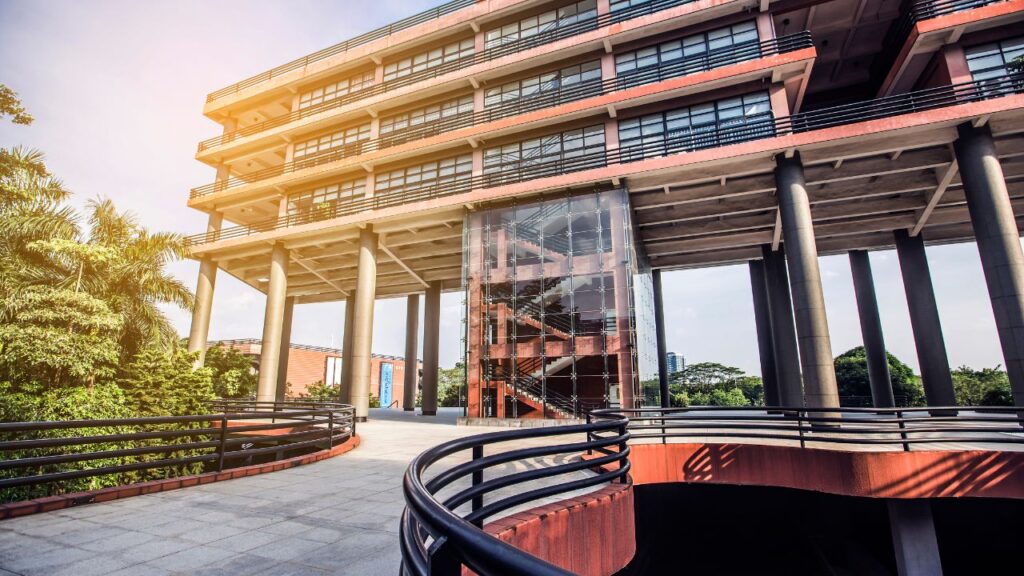
The company learned from this experience and began developing detailed scopes for their projects before beginning them, resulting in more accurate cost estimates.
“Trying to estimate market prices is like trying to predict the weather in Manchester – you’ll never be completely right, but you can make a good guess based on past experience.”
Uncertainty in the Volatility of Market Prices is a significant challenge in cost estimation. It can lead to inaccurate estimates, which may result in financial losses for a project or business.
To overcome this challenge, consider creating a table that compares the True prices with Actual prices obtained from the market. The table should contain columns such as Product Name, Comparison of Prices, True Price, and Actual Price.
Product Name | Comparison of Prices | True Price | Actual Price |
|---|---|---|---|
Product A | 10 units bought at once | $50 | $55 |
Product B | 5 units bought at once | $20 | $25 |
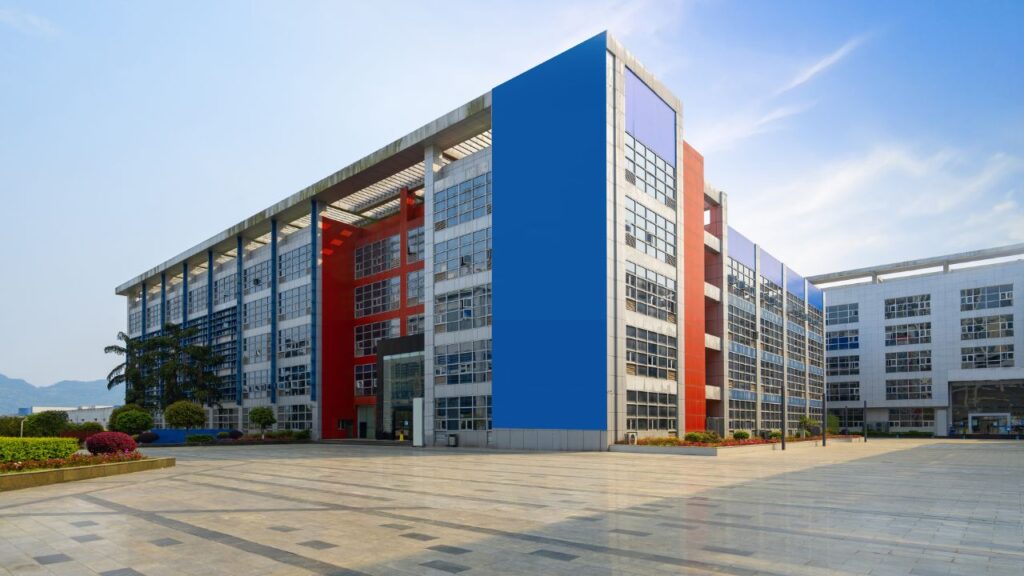
These comparisons will help you understand price volatility better and determine accurate cost estimates. Keep updating this table regularly to keep up with volatility changes.
Another way to overcome this challenge is to diversify your suppliers and avoid relying on one supplier who may categorically overcharge for their products or services. Explore different suppliers and vendors; it will reduce uncertainty in estimating costs.
Fear of missed opportunities drives many businesses to stay current with market trends. Always keep track of announcements related to firms, industries, or governments; they tend to trigger fluctuation in market prices. Taking advantage of an opportunity early enough can help get reasonable market prices that can reduce estimating cost uncertainties.
When it comes to estimating costs without historical data, it feels like trying to navigate a ship without a compass – you’re going to need a lot of luck and a damn good crew.
When estimating costs, data from past projects can be a key factor in determining accurate figures. However, when this information is not available or incomplete, professionals can face significant hurdles. This predicament is known as an “Insufficiency of Historical Data.”
In these situations, estimators must rely on other sources of information to make educated guesses and develop accurate estimates. Some may turn to industry benchmarks or historical data from comparable project types to build reliable cost models. In some cases, experts may employ statistical methods to identify trends in available data.
Despite the many approaches available for dealing with a lack of historical data, each situation presents unique challenges that require careful consideration and creative problem-solving skills. Many factors can contribute to missing or incomplete records that extend beyond simple negligence. For example, changes in technology or shifting priorities may result in inadequate recording practices during the initial project phases.
The unpredictability inherent in cost estimation requires an eye for detail and a wealth of experience to help mitigate unforeseen circumstances.

But with time and effort, it’s possible to craft accurate estimates without relying solely on historic data for support – paving the way for successful project outcomes and satisfied customers.
Allocating resources inaccurately is like playing Jenga with your project budget – one wrong move and everything comes crashing down.

Accurately estimating construction costs is crucial to project success. It helps in identifying the funds required, evaluating the feasibility of the project and minimizing the chances of going over budget. Cost estimation also enables contractors to submit competitive bids, ultimately leading to better business outcomes. Therefore, using reliable cost estimation methods and data is essential.
In addition to using reliable data, cost estimators must also consider various factors that can affect construction costs, such as regional differences, labor costs, materials, and permits. Accurately estimating these costs requires a deep understanding of the project, the construction process, and the industry.

If the cost estimation is inaccurate, it can lead to project delays, cost overruns, disputes, and potential legal issues. Therefore, it is important to invest time and resources in creating a detailed and reliable cost estimate.
It is worth noting that past experiences have shown that even minor inaccuracies in cost estimation can have significant and long-lasting impacts on the project’s timeline and budget. For instance, a contractor who underestimated the amount of steel required for a project ended up causing a delay in the project timeline, and in the worst case, it led to legal action by the owner.
Overall, it’s crucial to recognize the importance of accurate cost estimation in construction and to ensure that reliable methods and data are used to avoid any potential negative impacts. By doing so, contractors can better serve their clients, increase the likelihood of project success, and ultimately improve their business outcomes.
Remember, inaccurate cost estimation in construction can lead to the ultimate one-liner: ‘We’re over budget and behind schedule‘.
Accurate cost estimation plays a crucial role in ensuring the financial success of a construction project. It helps to identify potential cost overruns and allows for effective budget planning and control. Accurate cost estimation also helps builders to make informed decisions, avoid project delays, and deliver projects on time and within budget.
Inaccurate cost estimation can lead to a host of issues in construction projects. It can result in cost overruns, delayed timelines, disputes, and even project cancellation. Inaccurate cost estimation can also compromise the quality of a project, as builders may be forced to cut corners to stay within budget.
Builders can improve the accuracy of cost estimation by using reliable cost estimation tools, leveraging historical data, involving all stakeholders in the estimation process, considering market trends, accounting for design changes, and regularly reviewing and updating estimates throughout the project life cycle.
Technology can play a vital role in improving the accuracy of cost estimation in construction projects. Advanced software programs, Building Information Modeling (BIM) systems, and other tools can help builders to streamline the estimation process, reduce errors, and ensure that all aspects of the project are taken into account in the estimation process.
Some common cost estimation mistakes that builders should avoid include overlooking pertinent details, using outdated pricing information, relying solely on historical data, failing to account for contingencies, and not involving all stakeholders in the estimation process.
Here I am going to share some steps to get your construction cost estimate report.
You can send us your plan on info@estimatorflorida.com
Before starting your project, we send you a quote for your service. That quote will have detailed information about your project. Here you will get information about the size, difficulty, complexity and bid date when determining pricing.
We do construction cost estimating and prepare a detailed report for your project. At last you finalize the report and finish the project.
561-530-2845
info@estimatorflorida.com
Address
5245 Wiles Rd Apt 3-102 St. Pete Beach, FL 33073 United States
561-530-2845
info@estimatorflorida.com
Address
5245 Wiles Rd Apt 3-102 St. Pete Beach, FL 33073 United States
All copyright © Reserved | Designed By V Marketing Media | Disclaimer
IMPORTANT: Make sure the email and cell phone number you enter are correct. We will email and text you a link to get started.
By clicking “I Agree” above you give Estimate Florida Consultin express written consent to deliver or cause to be delivered calls and messages to you by email, telephone, pre-recorded message, autodialer, and text. Message and data rates may apply. You are able to opt-out at any time. You can text STOP to cancel future text messages.